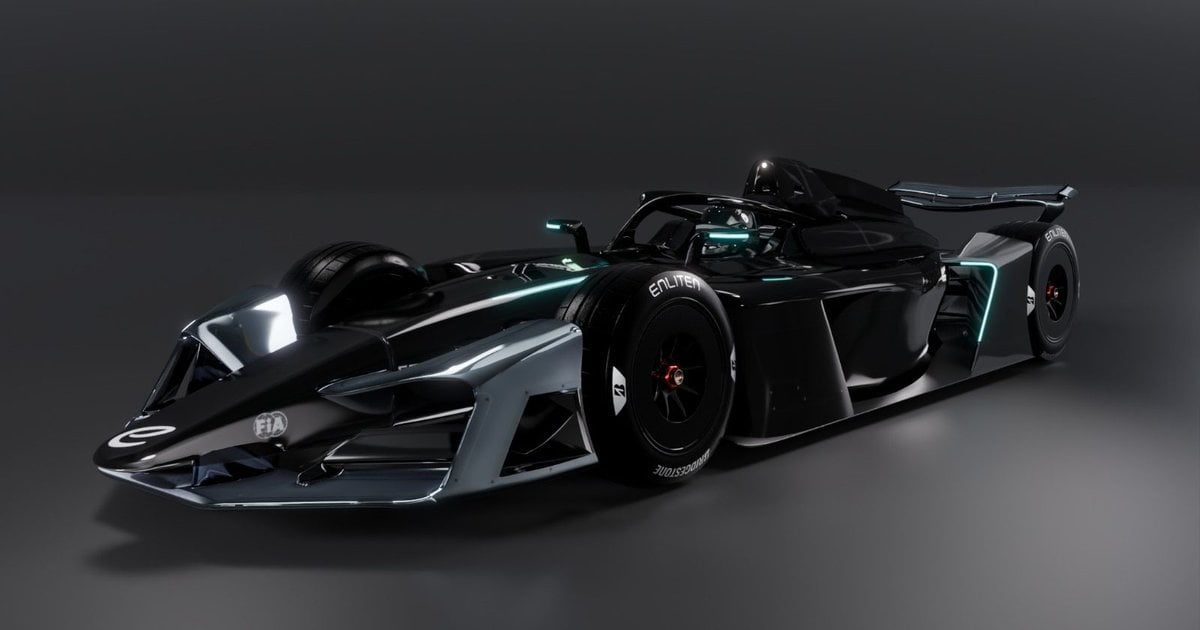Formula E and the FIA have introduced the GEN4 race car, setting a new benchmark in electric motorsport. The car reaches speeds above 200 mph and brings major changes in performance, engineering and sustainability.
Designed to push electric technology forward, the GEN4 is the fastest in the championship’s history and the first single-seater with permanent four-wheel drive.
The Fédération Internationale de l’Automobile (FIA) calls this car its most efficient yet. It has a circular design focused on environmental impact, made entirely from recyclable materials and built using 20% recycled parts.
Jeff Dodds, CEO of Formula E, says the test driver “cannot get out of the car without having a smile”.
The GEN4 is 100% recyclable and developed using a transparent supply chain, with environmental considerations integrated from the outset.
Beth Paretta, Vice President of Sporting at Formula E, explains: “That process was working with those suppliers from as soon as they were awarded the tender.
"The sustainability element of this was woven in with meetings through the entire process, from design concept to then sourcing, supply chain procurement and then ultimately delivery.”
This full-circle approach informs the entire vehicle, including its new battery and braking systems. The GEN4’s regenerative braking can recover up to 700 kW of energy, and the car’s power output rises to 600 kW when Attack Mode is active.
This makes the GEN4 not just faster, but also more energy-efficient. According to Marek Nawarecki, Senior Circuit Sport Director at the FIA, the new aerodynamics give the car “almost double” the downforce compared to its predecessor.
Bridgestone has been confirmed as the tyre supplier for the GEN4, with the car set to begin competition from Season 13, which starts in 2026.
Formula E now plays a central role in developing electric vehicle (EV) technology for the road. This connection is why manufacturers continue to back the series.
Jeff describes the racetrack as more than competition: “The manufacturers are in it because of the transferability between the racetrack and the road. They view the racing circuit as a laboratory and they get to test new technologies and develop new technologies.
“There are many stories over the years where Jaguar and Nissan and different manufacturer partners have discovered things within the racing programme that have allowed them to deliver a more efficient product on the road for domestic passenger vehicles.”
This collaboration goes beyond marketing. Porsche’s road vehicle development now integrates lessons from the Formula E circuit, with the Porsche 99X Electric race car contributeing directly to the development of the Cayenne Electric.
“Formula E is our development lab for the electromobility of tomorrow,” says Dr Michael Steiner, Member of the Board of Management for Research and Development at Porsche. “This is where we gain valuable insights for our road-going sports cars.
“The new Cayenne Electric shows how quickly such a technology transfer takes place at Porsche and how relevant our commitment to the electric racing series is to series production.”
Direct oil cooling for the electric motor, first trialled on track, is now featured in the Cayenne Electric. The same is true for Pit Boost fast-charging technology, which allows the Cayenne to add over 300 km of range in just 10 minutes.
Beyond speed and performance, Formula E’s GEN4 car plays a broader role. Marek says many of the technologies built into the GEN4 are relevant to road cars.
“The GEN4 will be a clear step forward for road relevancy in terms of electronics and traction management alongside some technologies which will be used for the development of the powertrain,” he says.
Marek also confirms close cooperation with carmakers to ensure the car’s development supports their future EV programmes: “We had long, extensive discussions with the manufacturers on that aspect, and it has been designed to allow the manufacturers to experience the newest technologies they have which are very relevant for the road cars being developed now.”
Sylvain Filippi, Managing Director and Chief Technical Officer at Envision Racing, believes the GEN4 sets a new standard: “The GEN4 car is a huge leap in performance, reinforcing our position at the pinnacle of motorsport, with the fastest accelerating race car on the planet.
“But what makes this truly inspiring is that it has been achieved whilst prioritising efficiency and sustainability, proving that ‘sustainable’ doesn’t mean compromise.”
For Filippi, the long-term aim is clear: “Our team mission has always been to accelerate the adoption of EVs powered by renewable energy, and the new Formula E car will be a huge enabler of that."
Transport accounts for around one fifth of global CO₂ emissions according to the International Energy Agency (IEA). Formula E’s backers believe a successful, efficient electric race car can help shift public perception and lead more drivers to switch from fossil fuels to electric.
VP, Sporting
Member of the Board of Management for Research and Development
Chief Executive Officer
Circuit Sport Director
Managing Director & CTO
Manufacturing Digital Magazine connects the leading manufacturing executives of the world's largest brands. Our platform serves as a digital hub for connecting industry leaders, covering a wide range of services including media and advertising, events, research reports, demand generation, information, and data services. With our comprehensive approach, we strive to provide timely and valuable insights into best practices, fostering innovation and collaboration within the manufacturing community. Join us today to shape the future for generations to come.











